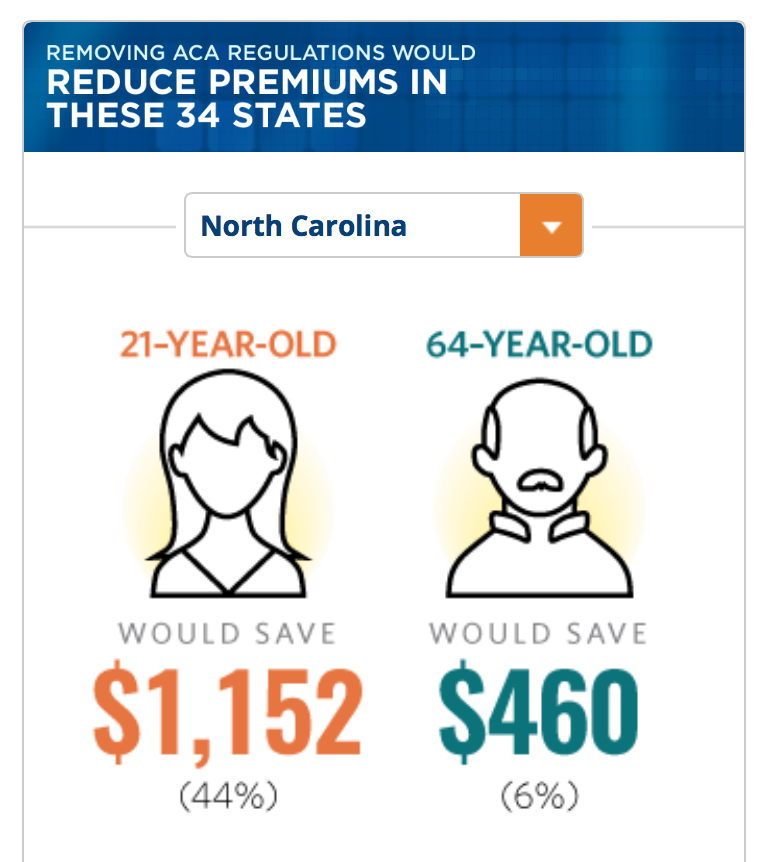Authority ultimately lies in the hands of Congress to make legislative fixes to a favorable plaintiff ruling in King v Burwell. If SCOTUS deems Obamcare subsidies invalid in federal exchange states like North Carolina, Justice Samuel Alito proposed the idea to stay the mandate until the following tax year as a way to ease market disruption. Some reports indicate Congressional Republicans are inclined to extend subsidies to federal exchange states in the form of block grants through 2016 – the idea being that a newly elected republican president will endorse market-reform health care legislation in 2017.
To begin pivoting towards market-oriented reform, it would be ideal for Congress to exempt citizens residing in federal exchange states from the individual and employer mandates (since subsidies are tied to these regulations), decentralize power to North Carolina so policymakers hopefully relax the most costly insurance regulations the federal health law enforces – like the ten essential health benefits that must be built into every health plan, the restrictive 3:1 age rating ratio through which the young and healthy are subsidizing the old and sick, and the minimum actuarial requirements insurers must comply with.
According to the Heritage Foundation, these actions could reduce average premiums by as much as 44 percent for some:



